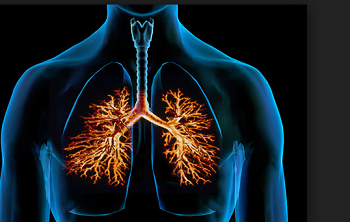Know What is Asthma Its Causes ,Symptoms and Treatment
Asthma High Risk Group
Asthma can attack at any age. The high risk group includes
Children are at high risk of becoming the victims of asthma. Children with frequent respiratory infections, allergies and family history of asthma are more likely prone to asthma attacks.
People working in factories or industries and are highly exposed to chemical irritants. This type of asthma is termed as occupational asthma.
Trouble Breathing Causes
People suffering with asthma have swollen airways which are very sensitive. The inflamed and swollen airways react fast and powerfully to some inhaled material. The reaction of the airways to the inhaled substances results in tightening of the surrounding muscles. This in turn narrows the airways. In an effort to get rid of the foreign substances, the cells around the airways start secreting more mucus. This thick fluid like substance blocks the airways aggravating the problem.The factors responsible for inflammation of the airways are exactly unknown. Certain genetic and environmental agents are considered to trigger agents for asthma.
They are
- Increased sensitivity to certain substances causing allergies such as dust, molds and pollen.
- Inheritance from parents.
- Chronic respiratory diseases in childhood.
- Increased exposure to airborne allergens and viral infections in the growing ages.
- Habits such as smoking increase the risk of asthma in people with family history of asthma.
- Drugs such as beta-blockers and non-steroidal anti inflammatory drugs.
Asthma Symptoms
The characteristic symptom of asthma is trouble breathing.
Other symptoms include
Severe cough early in the morning or at night.
Whistling sound while breathing known as wheezing.
Tightness in the chest region due to swollen muscles around the airways.
Difficulty to breath due to narrowing of the airways. They tend to take short and faster breath.
All people with listed symptoms may or may not have asthma. Other disease such as Eosinophilic esophagitis may also result in trouble breathing. Hence, proper diagnostic tests should be performed to confirm asthma attacks and for proper treatment.
Diagnosis of Asthma
Diagnosis is generally based on the medical history, family history of the disease and allergies, physical examination to identify symptoms of allergic reactions and diagnostic tests.
Diagnostic Tests Include
- Lung function test done with spirometry to study the functioning of lungs.
- Allergy tests to identify the specific allergens triggering the symptoms.
- Bronchoprovocation tests to estimate the sensitivity of airways.
- Tests to know the presence of other diseases with similar symptoms.
- Chest X-ray.
Treatment for Asthma
Every asthma attack does not result in worse symptoms. Sometimes the symptoms are mild and subside without or with a minimal treatment. However, few attacks can be very worse and need immediate attention. Paying attention to the initial asthma symptoms can reduce the risk of flare-ups i.e. severe to fatal asthma attacks.
Treatment generally involves use of
Long term medicines such as inhaled corticosteroids or pills that aim at controlling the inflammation of the airways to prevent asthma symptoms.
Quick relief medicines that aim at relieving the asthma symptoms to avoid the risk of flare-ups.
The treatment plan may vary depending on the severity of the disease which generally changes with change in lifestyle.
Asthma Prevention
Those diagnosed with asthma can prevent the onset of worst symptoms with simple changes in lifestyle such as
Regular practice of moderate physical activity.
Staying away from allergic substances.
Treating respiratory infections in the initial stages.
Lastly, with proper care people with asthma can manage the symptoms easily and lead a normal and active life.

0 komentar:
Post a Comment